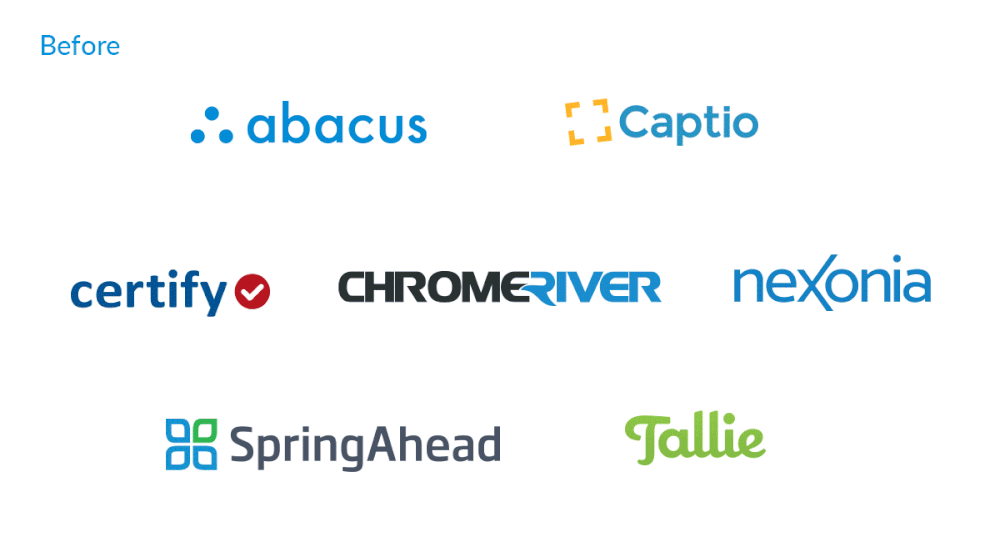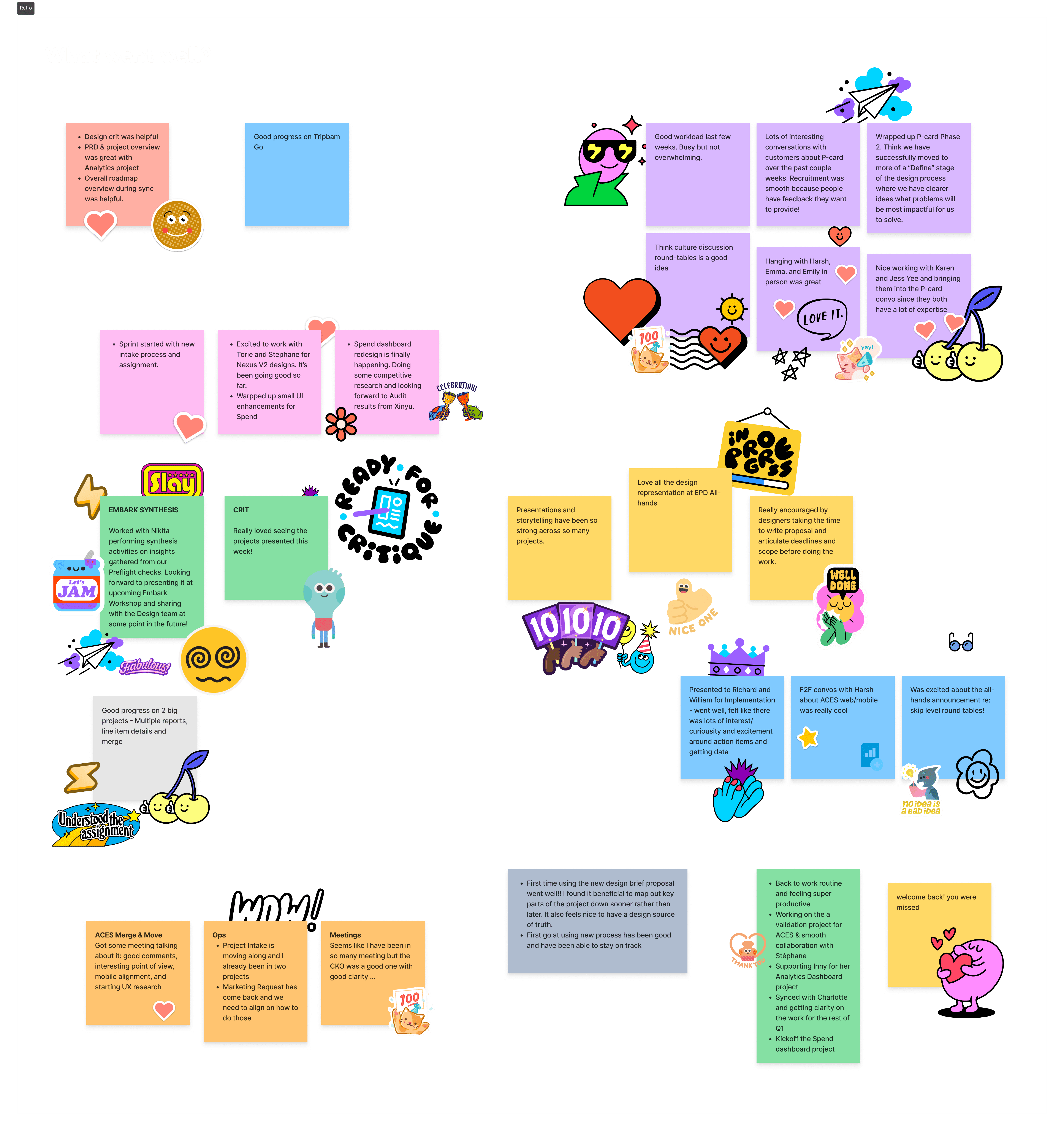Emburse Design Team
Emburse Design Team
Emburse Design Team
Early at Emburse, the design team wasn’t a team but a collection of talented and thoughtful human beings who had come together through various mergers and acquisitions. The company was going through a period of massive transformation and change. While each designer brought unique strengths and perspectives, it was clear to me that our effectiveness would be found in a team unified around a shared purpose that enabled us to harness our collective potential. Would others feel the same?
Early at Emburse, the design team wasn’t a team but a collection of talented and thoughtful human beings who had come together through various mergers and acquisitions. The company was going through a period of massive transformation and change. While each designer brought unique strengths and perspectives, it was clear to me that our effectiveness would be found in a team unified around a shared purpose that enabled us to harness our collective potential. Would others feel the same?
My Role
Design Strategy Design Operations Leadership
My Role
Design Strategy Design Operations Leadership
My Role
Design Strategy Design Operations Leadership



The Challenge
How do you transform a disparate group of individual contributors into a cohesive and effective design team? More importantly, should we?
The Challenge
How do you transform a disparate group of individual contributors into a cohesive and effective design team? More importantly, should we?
The Challenge
How do you transform a disparate group of individual contributors into a cohesive and effective design team? More importantly, should we?



The Approach
I began by having one-on-one conversations with designers to understand their goals and aspirations. Understanding what motivated each team member was crucial in assessing how they were feeling during a very tumultuous time in their careers. Additionally, I connected with our Chief Product Officer and other key stakeholders in the executive team to understand the future direction of the product and the business. These conversations were instrumental in assessing the potential value of the “Emburse Design Team.” Through these conversations, was I beginning to see the value that a unified team could bring to the individual designers, our teams and initiatives, and the company at large. With these insights, the journey started with doing one simple thing: creating space for everyone. Space to get to know each other, to understand that we are in the same boat. Space to simply learn to trust each other.
The Approach
I began by having one-on-one conversations with designers to understand their goals and aspirations. Understanding what motivated each team member was crucial in assessing how they were feeling during a very tumultuous time in their careers. Additionally, I connected with our Chief Product Officer and other key stakeholders in the executive team to understand the future direction of the product and the business. These conversations were instrumental in assessing the potential value of the “Emburse Design Team.” Through these conversations, was I beginning to see the value that a unified team could bring to the individual designers, our teams and initiatives, and the company at large. With these insights, the journey started with doing one simple thing: creating space for everyone. Space to get to know each other, to understand that we are in the same boat. Space to simply learn to trust each other.



Building Culture
We established regular communication channels, including weekly design reviews and brainstorming sessions, to encourage ongoing dialogue and collaboration. We created a culture of healthy design discourse by implementing regular design critique sessions where team members could provide constructive feedback and discuss ideas openly. Team retrospectives were one of the biggest things I implemented that allowed the team to shape, influence, and improve the team. It fostered a culture of feedback and constant improvement, encouraging designers to share their thoughts early and often. After proving the value of our unified design team through successful project outcomes and increased quality of design work, we expanded the team to include two crucial areas—UX Research and Design Systems. The design team conducted more profound user research and developed consistent design patterns across our products.
Building Culture
We established regular communication channels, including weekly design reviews and brainstorming sessions, to encourage ongoing dialogue and collaboration. We created a culture of healthy design discourse by implementing regular design critique sessions where team members could provide constructive feedback and discuss ideas openly. Team retrospectives were one of the biggest things I implemented that allowed the team to shape, influence, and improve the team. It fostered a culture of feedback and constant improvement, encouraging designers to share their thoughts early and often. After proving the value of our unified design team through successful project outcomes and increased quality of design work, we expanded the team to include two crucial areas—UX Research and Design Systems. The design team conducted more profound user research and developed consistent design patterns across our products.


